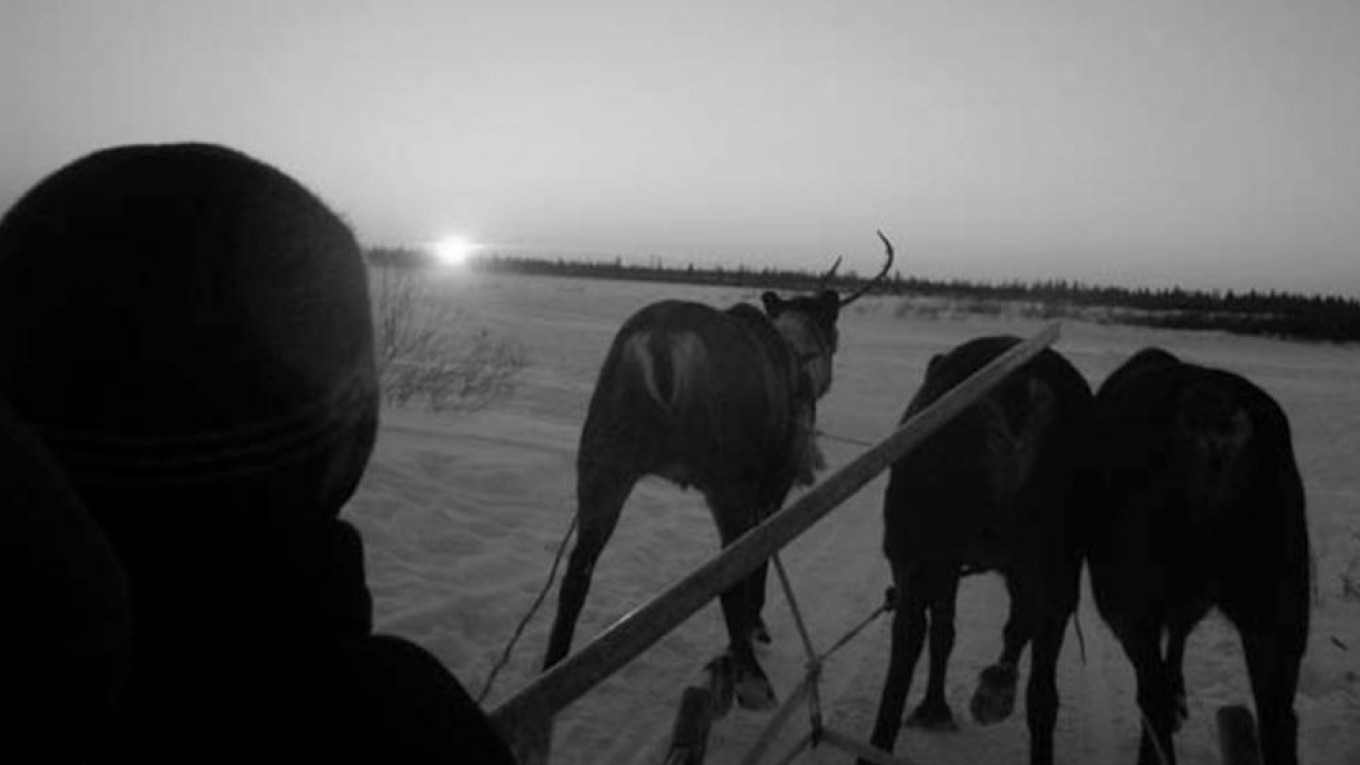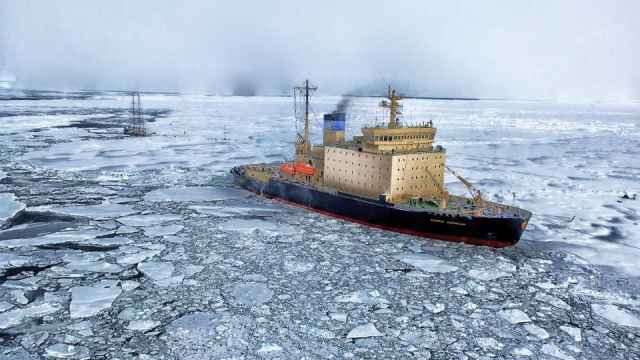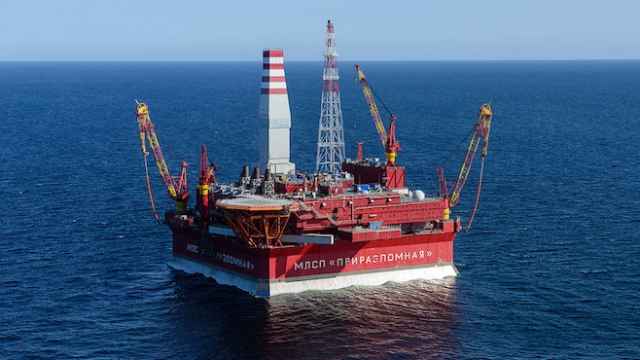In the lead-up to The Moscow Times’ 25th anniversary, we'll be republishing an article from our extensive archive every week, selected by current or former staff.
This article was first published on Apr. 11, 2008, and has not been redacted in any way.
.................................................................................................................................
When an airplane carrying LUKoil workers crashed in the far north of this Arctic region three years ago, killing 29 of 52 people on board, many blamed the weather.
When, one year later, in March 2006, a helicopter carrying victims’ relatives to a commemoration ceremony at the crash site also fell, killing another person, the indigenous people thought something else was at play. The land, they said, was cursed.
One of Russia’s newest oil-producing regions, the Nenets autonomous district is home to lucrative projects for LUKoil and Rosneft. It is also home to a population of 7,000 indigenous Nenets, whose livelihood and seminomadic way of life is being increasingly threatened by the region’s growing oil industry.
“They defied the energy of the land,” said Kolya, a Nenets shaman who, at 39, looks at least 20 years older, speaking of the crashes. Squatting in his tent (called a choom) 5 kilometers from Naryan-Mar in the snow-covered tundra one recent evening, he spoke slowly, slurring his words through wide gaps of missing teeth after one beer too many.
“The earth started to sink and all the souls started to rise,” he said.
NaryanMarNeftegaz, a 50-50 joint venture between LUKoil and ConocoPhillips, built an oil platform in the northern port of Varandei on the site of a native cemetery, local Nenets say.
As oil production spreads to the country’s farthest corners, local people and activists are warning that the country risks not only ecological catastrophe but also a serious threat to the native cultures that have inhabited these Arctic regions for centuries.
“There is so much work going on — roads, pipelines — and several oil companies working at once. It disrupts the path of the reindeer herders, and that’s quite painful,” said Nikolai Latyshev, a vice president at Yasavei, a local organization fighting for indigenous rights. “There’s enough land and reindeer for now, but what if that changes?”
Most Nenets who live here devote themselves to traditional occupations, like reindeer herding and fishing, existing barely at subsistence levels, as the district’s economy booms on the back of sky-high oil prices.
“To live poor with such rich neighbors isn’t normal,” said Mikhail Kanev, 52, a reindeer herder who shares a choom with his brother, his son and a friend. Nenets comprise about 17 percent of the district’s population.
Kanev makes about 3,000 rubles per month ($125), and even here, nearly 40 kilometers into the tundra, expenses run high. In winter, much of the tundra can only be traversed by snowmobile, and gasoline is expensive. There are warm clothes to buy and cell phone bills to pay.
“For two years, I haven’t really received my wage anyway because of my debts,” Kanev said, sitting at a table in the choom laden with reindeer meat, vodka and tea. “You work for money, but buy things from the shop on credit, and my wage goes directly to pay that off.”
Yet, according to official surveys, the Nenets autonomous district places among the country’s best regions in terms of living standards. The average wage here is 33,000 rubles ($1,400) per month, and the district’s administration is overflowing with oil revenues, which provide more than 90 percent of its budget.
Naryan-Mar, the regional capital, is dotted with modern buildings and construction sites. Prices for groceries rival those of Moscow, as transport costs add to the official 12 percent inflation rate. No roads or trains from the rest of the country reach the district, and everything must be flown in by plane.
Seeing how their Russian neighbors live, many indigenous Nenets youth find it difficult to keep to traditional ways, locals say. Worse, that way of life is being threatened by the very projects enriching the area.
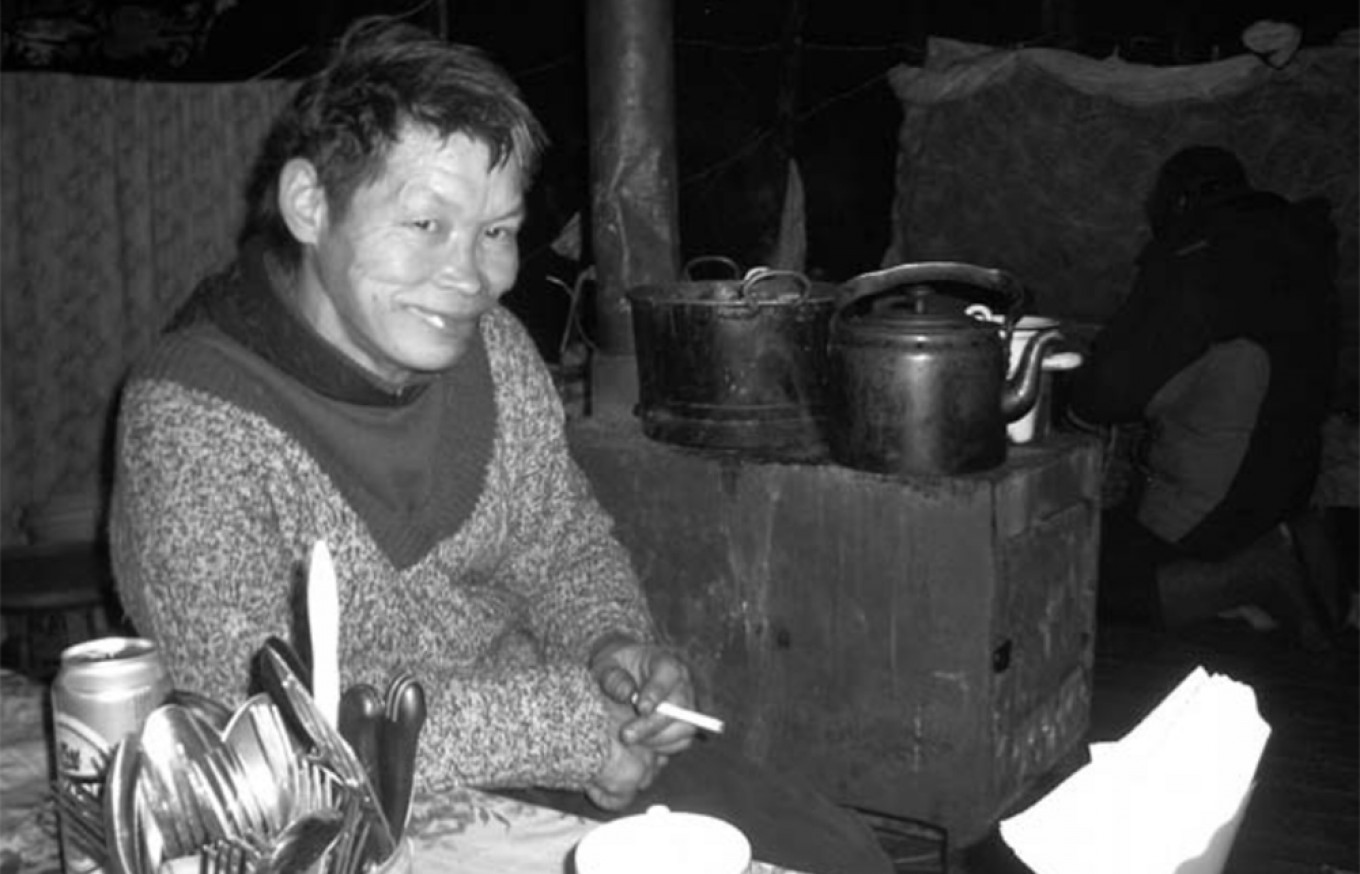
Like hundreds of reindeer herders, Kanev and his colleagues migrate south every winter, ever closer to their base at Krasniye, a settlement outside the capital that is home to their cooperative settlement (which they still refer to using the Soviet-era term, kolkhoz).
In summer, they return north, trying to dodge the pipelines that increasingly crisscross the district, as mainly LUKoil subsidiaries seek to develop the fields that were first discovered in Soviet times.
“They don’t clean up after themselves,” Kanev said of the oil companies. “Metal from the pipes lies around everywhere.”
Their route takes them past the vast Yuzhno-Khilchuyu oil field, the largest project in the Nenets autonomous district, which NaryanMarNefteGaz is planning to bring online this year.
Nenets lies in the oil- and gas-rich Timan-Pechora basin and holds an estimated 3.6 billion tons of recoverable oil and gas reserves, with just 70 million tons pumped so far, according to figures provided by the regional administration.
The first oil began flowing in 1988, from the Kharyaga field, which is now run by a production-sharing agreement between LUKoil, France’s Total and the regional administration.
The companies promise to build sections of pipeline high above ground, so the reindeer can pass under without disrupting their normal route. But the firms often don’t follow through on their pledges, Kanev and his colleagues said.
“Then we have to just go around them,” he said.
“A number of areas are simply too crowded with installations and tracks that destroy the vegetation so that the area is deteriorated,” said Winfried Dallmann, a senior research fellow at Norway’s Centre for International Climate and Environmental Research.
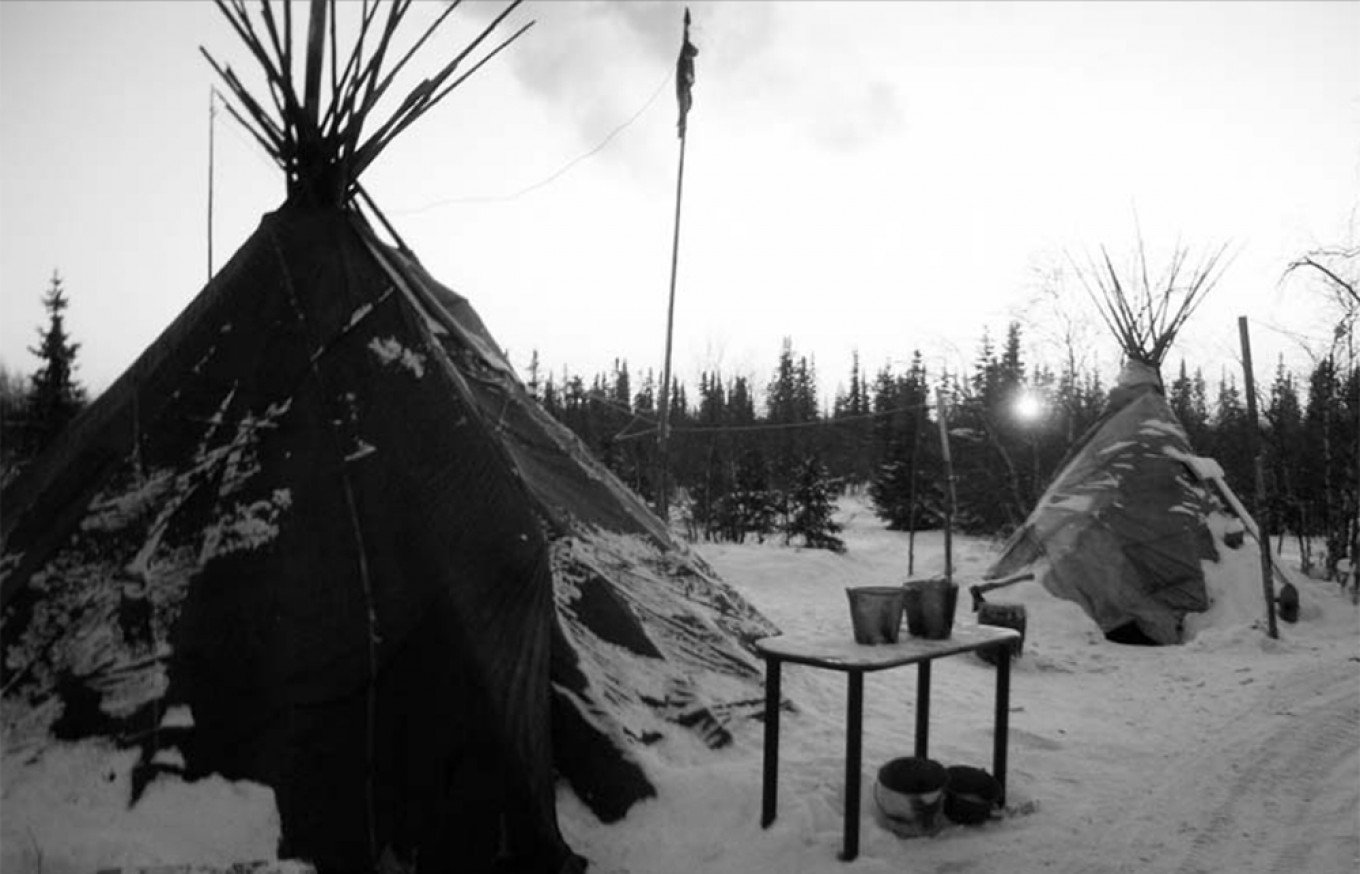
Around 90 percent of the entire district is considered reindeer feeding-ground. But the herders are confined to using 70 percent of that area, Dallmann said.
“The rest is either taken from the people or they cannot use it because the reindeer can’t go there — they can’t cross some of the pipelines,” he said.
Andrei Zayarny, who heads LUKoil-Komi’s negotiations with indigenous peoples, said the firm was working with a Soviet-era mess, left over from when geologists made their first inroads into the district in the 1960s.
“When the Soviet Union fell apart, a lot of their work was thrown into the tundra,” he said, adding that the company earmarks 10 million to 15 million rubles ($430,000 to $640,000) per year to recultivate the tundra.
“We follow through on all ecological standards because we are a private company and have to answer to high standards,” Zayarny said.
The indigenous Nenets, organized through 19 cooperative settlements, conclude long-term contracts that run as long as 45 years, by which they lease land from the administration. That means the oil firms must win their approval to build pipelines and platforms on their land — it is their only leverage.
“We give them socio-economic support,” said Sergei Ruzhnikov, chief spokesman for NaryanMarNefteGaz, during an interview inside the regional administration offices. "We don’t have to do it, we do it because we want to.
“They get what they want from us and we get their agreement to do our work on their land,” he said.
Yet Latyshev, of Yasavei, said the natives were effectively coerced into agreeing. “It’s hard since there is barely any property ownership here,” he said. “When an oil company gets a license for a field, the government must give them land — oil must be produced. In this case, the reindeer herders are basically forced to agree,” he said.
Dallmann agreed. “They feel they are more or less powerless against the piece-by-piece loss of reindeer pastures and natural areas,” he said. “Of course people want to talk and have a dialogue, but nothing really happens and industrial development just goes its way.
“They are not necessarily against oil development in principle, but the way it is done — laws are not really upheld, there is no constructive dialogue,” he said.
Ruzhnikov declined to put a figure on the amount of support the firm gives to the local reindeer herders, saying the Nenets had asked for confidentiality to prevent “jealousy.”
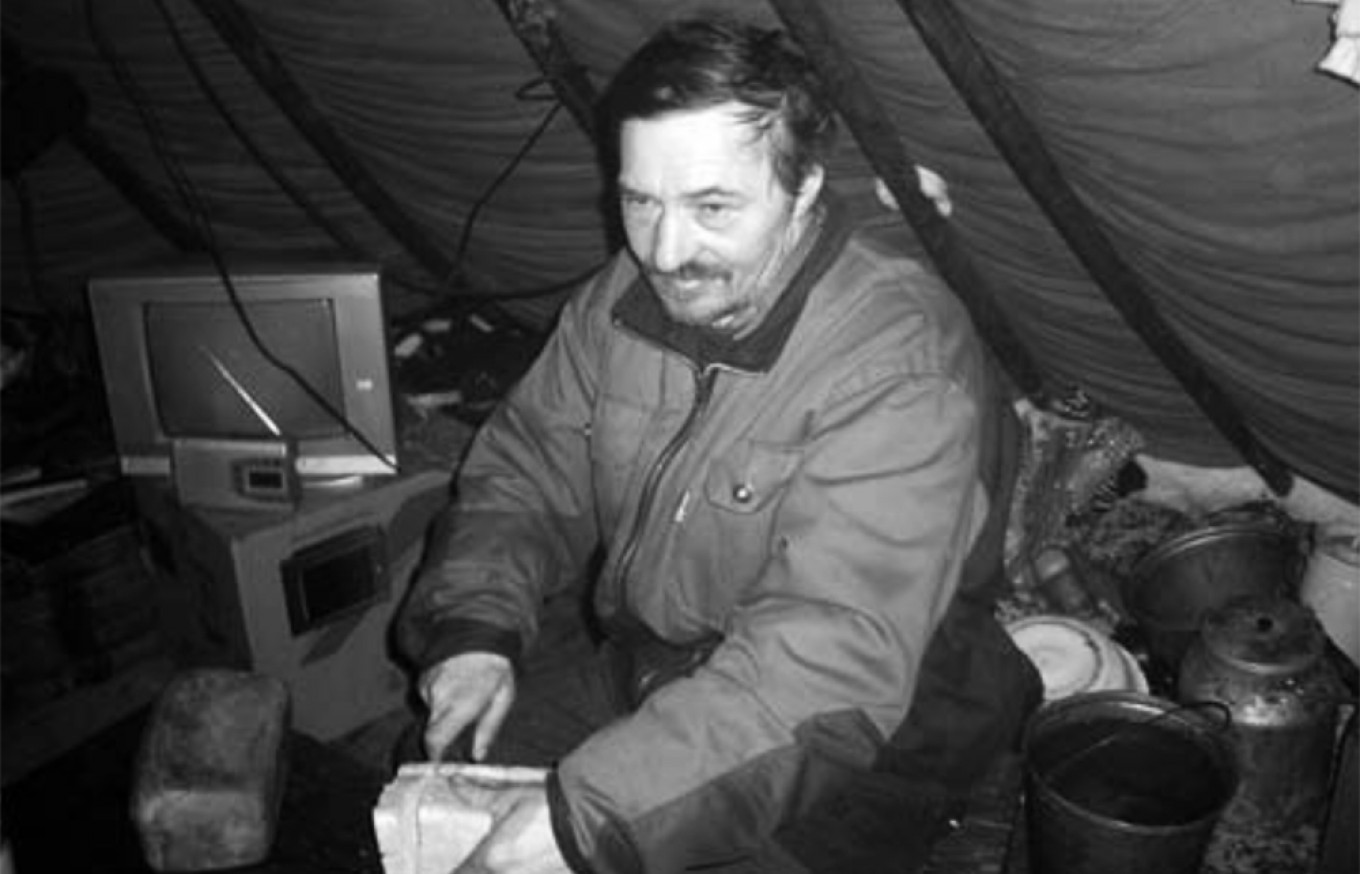
“We understand that our work bothers them — pipeline construction, the sound of increased helicopter flights — so we finance a yearly economic program. We buy them groceries, build apartments, give them medicine and clothes — everything they need for a normal life,” he said.
Yet life in the tundra is far from normal.
Alcoholism and drug use is rampant, a fact local Russians blame on the harsh living conditions and the natives’ character. Activists say, however, that it is a result of the imposed hopelessness about their lot in life.
“It’s a syndrome among indigenous people who are deprived of their way of life and have difficulties to adopt to another one,” Dallmann said. “They have, certainly, problems with their identity and some start to drink. That’s just a fact all over the Arctic, and it’s not their fault,” he said.
Vera Letkova, an indigenous Nenets in her mid-40s who now lives in Naryan-Mar, has had a difficult time adapting to what she calls “city life,” although the capital is a sleepy town of just 18,000 people.
Her eyes light up and she flashes a silver smile when she speaks of Varandei, her homeland in the north. “We have the most beautiful coast, the most beautiful land. If I stay away too long, I simply get sick,” she said.
Her settlement, known as Old Varandei, was shut down in 1998 as the coast started to deteriorate and it was classified as ecologically fragile. The settlement’s entire population was then resettled in various places throughout the Nenets autonomous district, which is about twice the size of Portugal.
This happened at the same time as NaryanMarNefteGaz began building its oil terminal at Old Varandei.
“They moved us all and I was resettled to Naryan-Mar,” Letkova said. “The people couldn’t find themselves in this city life.”
People started drifting back, she said, and now around 20 people live in the settlement’s crumbling houses.
“When the people came back, no one was dealing with their problems. You’d go to them, and they’d have no bread on the table. No groceries, nothing. There isn’t even a store. They sit without light,” she said.
Letkova travels to the port town often, and has taken up the cause of her former neighbors, in November winning a belated acknowledgement from the regional administration that the settlement existed.
“For a long time the administration refused. They said, ‘The settlement has been removed — there are no people so there are no problems,’” she said.
Now Letkova is in the process of registering the settlement as a “self-governing territory,” known by its Russian acronym TOS, and she hopes that this will solve their problems.
“I could never believe it when people asked, ‘Why did you come back here?’ We came home. Everyone has a homeland,” she said.
A Message from The Moscow Times:
Dear readers,
We are facing unprecedented challenges. Russia's Prosecutor General's Office has designated The Moscow Times as an "undesirable" organization, criminalizing our work and putting our staff at risk of prosecution. This follows our earlier unjust labeling as a "foreign agent."
These actions are direct attempts to silence independent journalism in Russia. The authorities claim our work "discredits the decisions of the Russian leadership." We see things differently: we strive to provide accurate, unbiased reporting on Russia.
We, the journalists of The Moscow Times, refuse to be silenced. But to continue our work, we need your help.
Your support, no matter how small, makes a world of difference. If you can, please support us monthly starting from just $2. It's quick to set up, and every contribution makes a significant impact.
By supporting The Moscow Times, you're defending open, independent journalism in the face of repression. Thank you for standing with us.
Remind me later.


